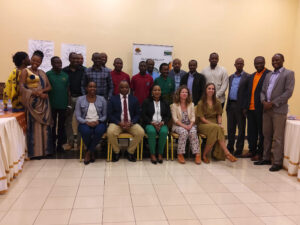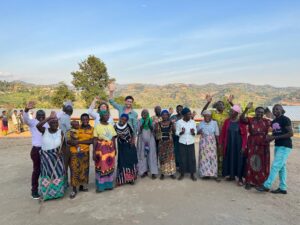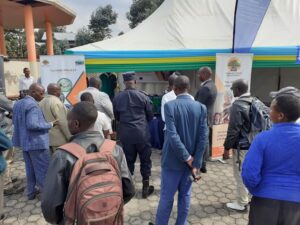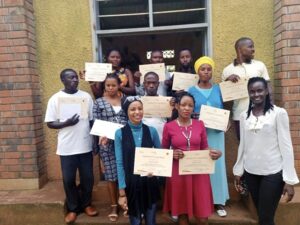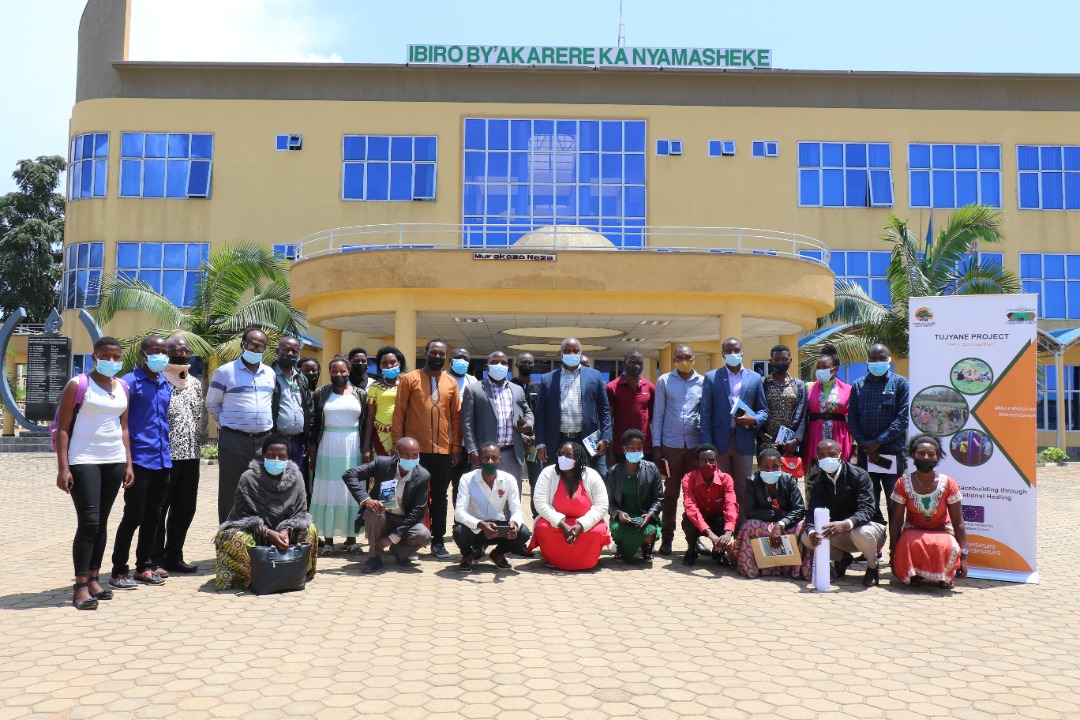
By Felibien Hirwa Tuzayisnega
The main actors that can make sure that peace becomes long-lasting, are community members who have been directly or indirectly affected by the past conflict(s). Therefore, it is of major importance that community members have a platform where they can share their ideas on how peace can be strengthened in their community. ‘Grassroots advocacy’, can be a suitable approach used in the community. The approach includes organizing, mobilizing, and engaging the public to advocate for themselves. This is what the People’s Parliaments for Peace (PP4P), as part of the ‘Tujyane project’ (in English: Let’s go together), aims at. The first two PP4P sessions took place in Nyamasheke and Rusizi districts and have been appreciated by authorities from the districts.
PP4P are platforms created by community members to share the obstacles that hamper processes of peacebuilding, but also present recommendations to the local authorities and other community leaders that can effectively help to overcome these obstacles. The PP4Ps were initiated for the first time by Community Based Sociotherapy (CBS Rwanda) in 2018 and are currently part of the ‘Tujyane project’. This project is implemented in partnership with the Radio La Benevolencija (RLB) and funded by the European Union (EU).
The two PP4P sessions at district level were organized by Musekeweya Listening Club members from each district. These Listening Clubs are existing since 2017 and members listen on a weekly basis to the radio drama Musekeweya (A new dawn). They have been promoting peace at community level by fighting genocide ideology and providing mediation in relation to family conflicts. They position themselves as active bystanders in the road to sustainable peace. According to Nicolas Habarugira, CBS Coordinator of the Tujyane Project, these clubs have been identified as effective community channels that can play the key role in advocating for other community members. The club members that presented during the PP4P sessions were from Macuba, Mahembe, Kagano, Nyabitekeri, and Gihombo sectors from Nyamasheke district and from Kampembe, Rugarama, Nkungu, Nkaka, and Nkombo sectors from Rusizi district.
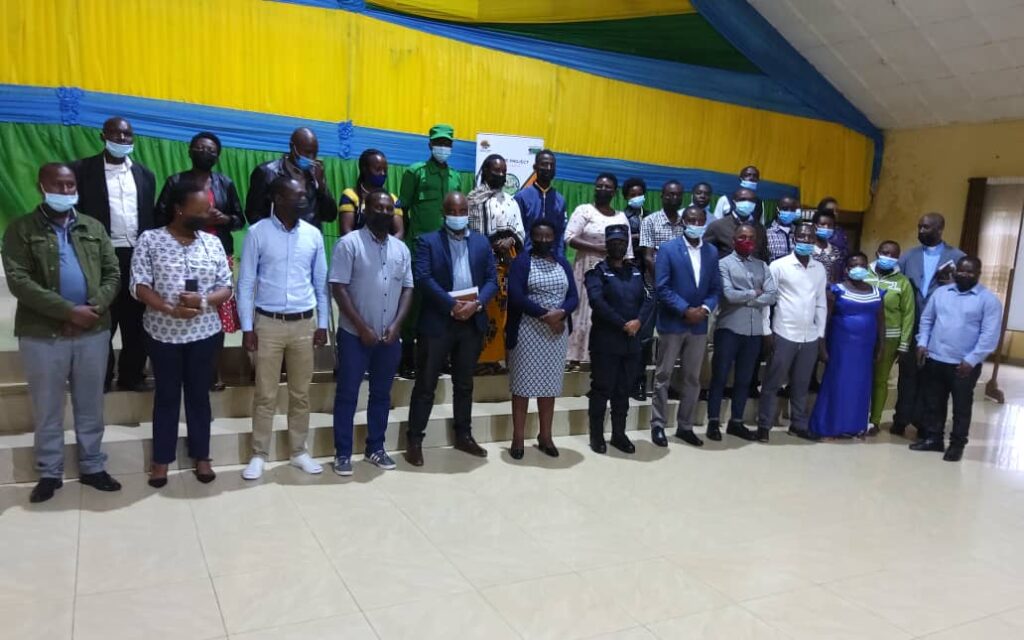
Before the PP4P sessions took place, CBS Rwanda and RLB provided a five-day training on Grassroots Advocacy, Active Bystandership and the Continuum of Violence. Habarugira: “This training has equipped listening club facilitators with skills to guide the PP4P process and provided the necessary tools to start grassroots advocacy processes. They increased their ability to identify and analyze community problems that obstruct processes of socio-economic development and peacebuilding.
Together with other community members who are part of the Listening Clubs, they designed ‘problem trees’ which presented the community problems/obstacles (trunk of the tree), root causes (roots of the tree), and the consequences (branches of the tree). After developing the problem tree, the ‘solution tree’ was designed. This tree described the activities to be conducted (roots of the tree), the vision (trunk of the tree) and the eventual results. After developing these trees, community representatives were invited to present the outcome to the district authorities in the PP4P session. Three members per club per district. Their presentations revolved around the following community problems: genocide ideology, family conflicts, home violence, school dropouts and consequences of trauma.
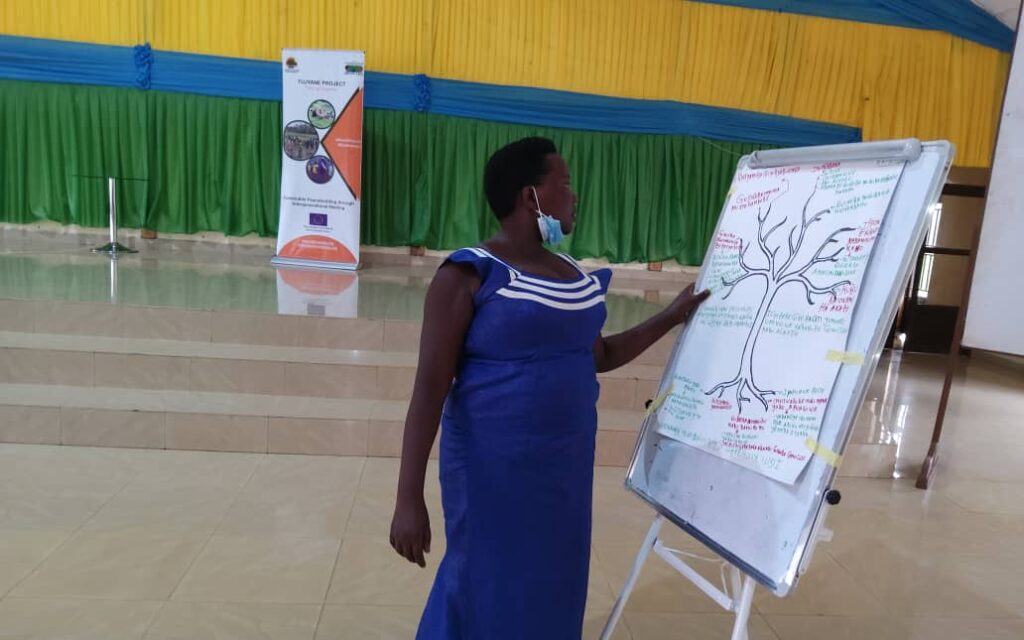
Mr. Jean Claude Uwineza, the Nyamasheke Council Advisor, appreciated the efforts of community members – PP4P – in contributing to sustainable peace. Jean Claude proposed that similar PP4P sessions should be organized for many community members in all 18 sectors of Nyamasheke so that people can work all together to eradicate all setbacks that are still slowing down the socio-economic development, reconciliation and peacebuilding process.
The Tujyane project was launched in 2020 with the goal to contribute to the national endeavors of building sustainable peace through democratization and reintegration of prisoners. It is expected that these PP4P will play key roles in attaining the project goals. In total five clubs per district have attended the training and this is around 200 participants in total from 10 sectors.

